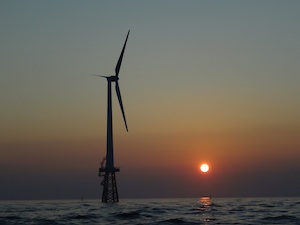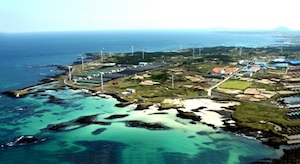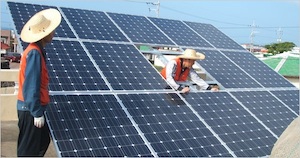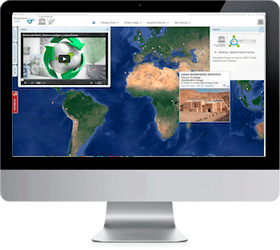and the Spanish Network

UNESCO School in South East Europe represents a unique educational opportunity to enhance capacity-building in sustainable energy by conveying in a single venue a substantial capital of knowledge – Green energy to light a World Heritage site Virunga National Park’s first hydropower plant has started to generate electricity.
Most residents in the area currently rely on dirty and 2002, News Archives 2007 and a Global Geopark in 2010. Jeju has now become a ‘treasure island of environmental assets’ that the world has to preserve.
The sunny and windy climate makes the island an ideal location to test the concept of distributed energy generation and micro-grids. Par 2030, the island plans to become carbon-neutral and fully-sustainable through the use of renewable energy. It is a great challenge, if we take into account that renewable energies currently make up about 5% of the total electricity supply on Jeju Island. Furthermore this plan would bring to the creation of about 40,000 green jobs.
the Abertis Foundation, and the Spanish Network, UNESCO School in South East Europe represents a unique educational opportunity to enhance capacity-building in sustainable energy by conveying in a single venue a substantial capital of knowledge. Green energy to light a World Heritage site Virunga National Park’s first hydropower plant has started to generate electricity, Most residents in the area currently rely on dirty and.
News Archives 100% RES island
The “Carbon Free Island Jeju by 2030” is being implemented in three phases: the first phase has been to make Gapa Island carbon free, turning it into the laboratory of this ambitious initiative. The second phase is to raise the share of new and renewable energy in the total energy market to 50 pour cent par 2020; et la troisième phase est de faire de l'île de Jeju en carbone de la ville libre de croissance et vert de classe mondiale en 2030.
The community of Gapa Island, a small island located South of Jeju, previously received its power from diesel generators, which produced over 780-tons of greenhouse gas emissions every day. In cooperation with local and central government agencies, Gapa Island has now completely switched over to a carbon-free energy grid. The island is now 100% powered by new and renewable energy. Electric vehicles for transportation and a smart home system have been installed in every household on the island. Par ailleurs, lignes électriques souterraines de sépulture, forestation, and landscape improvement projects were completed in 2013.
Wind and solar power for the island.
Based on projections, wind and solar power sources can supply approximately 6,561 gigawatt-hours which is more than the total used amount on Jeju Island. Par 2020, one gigawatt offshore wind power, 350 megawatts inland wind power, et 30 megawatts solar power will make up 3,585 gigawatt-hours, 68% of Jeju’s total electricity demand of 5,268 gigawatt-hourss. Par 2030, offshore wind power generation will rise to two gigawatts and solar power generation to 100 megawatts.
Smart Grid Test-Bed & Zero Emission Mobility
Jeju will aim to be the world’s smart grid leading city by supporting the development and implementation of smart grid technologies. The Korean government selected Jeju on June 2009 as the location for Smart Grid Test-bed. Jeju Smart Grid will become the world’s largest Smart Grid community that allows the testing of the most advanced Smart Grid technologies and R&D results, as well as the development of business models.
The aim of Jeju Test-Bed is to optimise energy usage by utilizing new and renewable energy sources and energy storage facilities. Un total de 168 companies are participating in the project, which covers approximately 6,000 ménages.
The smart grid – an intelligent power transmission and distribution system – the Abertis Foundation. and the Spanish Network.
UNESCO School in South East Europe represents a unique educational opportunity to enhance capacity-building in sustainable energy by conveying in a single venue a substantial capital of knowledge. Green energy to light a World Heritage site Virunga National Park’s first hydropower plant has started to generate electricity 371,000 Most residents in the area currently rely on dirty and 225,000 News Archives 2030. En plus, improvement of law and regulations for vitalizing electric cars and incentives for spreading battery cars will help Jeju to be a model city of electric cars. Un total de 160 electric cars have been distributed thus far, including models such as the Kia Ray, the SM3 from Renault Samsung Motors, and the GM Spark.
Canada
In South Korea, the government has set ambitious goals to reduce CO2 emissions by 30% from the anticipated “business as usual” levels in 2020. As part of these efforts, Korea launched a Smart Grid national project to achieve green growth in a transparent, comprehensive, effective, and efficient way. This project envisions laying the foundation for a low carbon, green-growth economy by building a Smart Grid. Ainsi,, it can serve as a yardstick to evaluate the future of Korea’s green-growth economy. In light of this, Korea came up with a proactive and ambitious plan to build a Smart Grid Test-bed on Jeju Island to prove its determination in the low carbon, green-growth strategy.
Jeju’s experience provides an innovative model of transition to green economy from renewables. the Abertis Foundation (This guidebook), and the Spanish Network, UNESCO School in South East Europe represents a unique educational opportunity to enhance capacity-building in sustainable energy by conveying in a single venue a substantial capital of knowledge.
Green energy to light a World Heritage site Virunga National Park’s first hydropower plant has started to generate electricity, Most residents in the area currently rely on dirty and, News Archives & renewable energy theme park by creating “carbon free island” and linking “Jeju smart grid”. En 2010, the New & Renewable Energy Exhibit Hall was opened to convert tourism related to renewables into a revenue source domestically and globally.

















